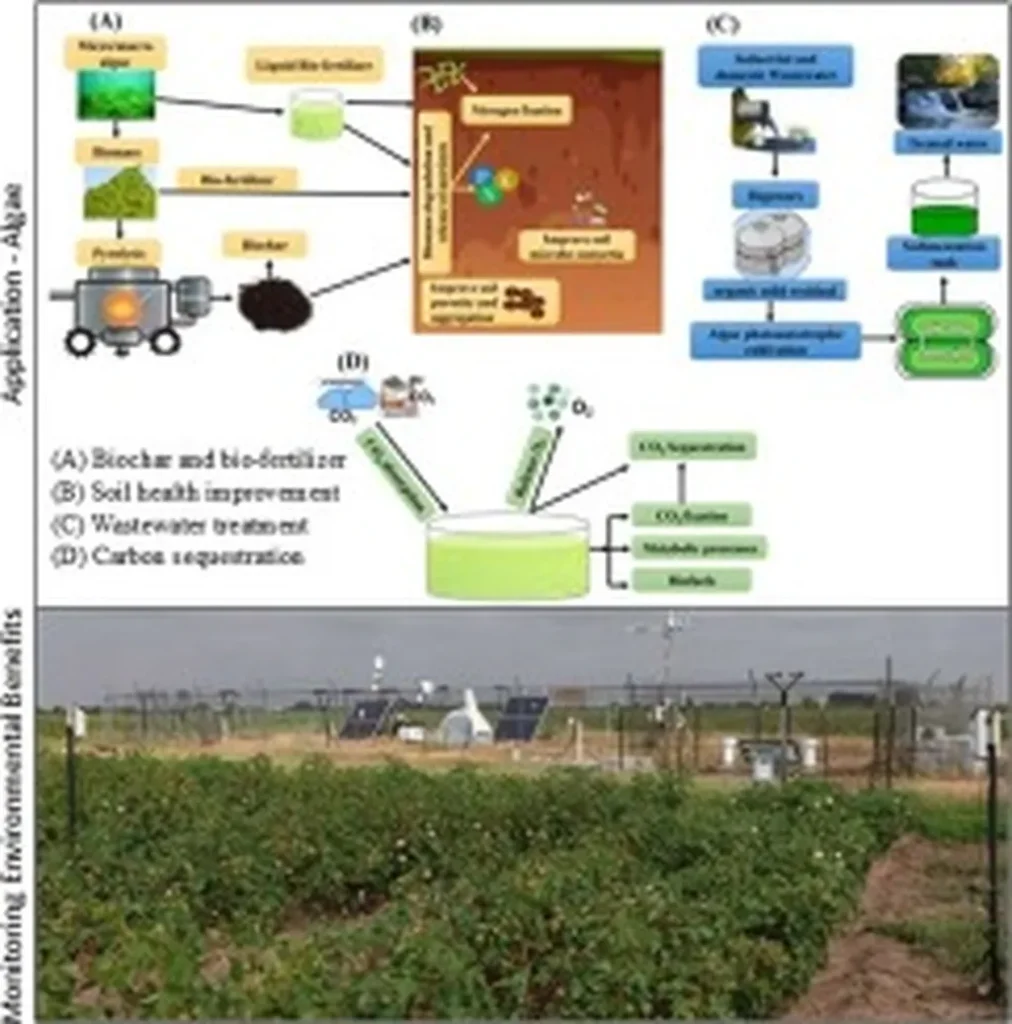In the quest for sustainable agriculture, researchers have long sought alternatives to conventional chemical fertilizers that can boost crop yields while minimizing environmental impact. A recent study published in the *Journal of Integrative Agriculture* (translated from Chinese as “Comprehensive Agriculture”) offers a promising solution: polyphosphate-enriched algae fertilizer (PEA). This innovative approach not only enhances plant growth but also improves soil health and microbial diversity, potentially revolutionizing the agricultural industry.
Led by Jiahong Yu of the Key Lab of Organic-based Fertilizers of China at Nanjing Agricultural University, the research team developed PEA and conducted extensive experiments to compare its efficacy with traditional chemical phosphorus (P) fertilizers (CP). The results were striking. PEA released twice as much labile P—phosphorus that plants can readily absorb—as initially available in the soil, acting as a slow-release P source. In contrast, soils treated with CP initially showed high levels of labile P, which gradually converted to stable forms and dropped to just 30% of the labile P level in PEA after three months.
“This slow release of phosphorus from PEA is linked to increased microbial activity,” explained Yu. “We found that the microbial biomass phosphorus (MBP) content was about eight times higher in soils treated with PEA compared to those treated with CP after three months. This resulted in a significant decline in the microbial biomass carbon (MBC) to MBP ratio, indicating a more robust and diverse microbial community.”
The study also revealed that PEA recruited a wider array of beneficial microbes, including phosphorus-solubilizing bacteria, plant growth-promoting bacteria, and stress-resistant bacteria. These microbes play crucial roles in enhancing soil fertility and nutrient cycling, ultimately promoting healthier plant growth.
Crop pot experiments further demonstrated that PEA promoted plant growth comparable to CP, while also enhancing soil P cycling and overall nutrient dynamics. “Our data show that algae fertilizers, especially PEA, can stabilize soil P fertility and stimulate plant growth through their slow P release and the recruitment of beneficial microbes,” Yu noted. “This highlights the potential of PEA to foster sustainable agriculture by mitigating P scarcity and soil P loss associated with chemical fertilizers.”
The implications for the agricultural sector are profound. As the global population grows and arable land becomes scarcer, the demand for efficient and sustainable fertilizers will only increase. PEA offers a viable alternative that not only meets these needs but also contributes to long-term soil health and environmental sustainability.
“This research could shape the future of fertilizer development,” said Yu. “By leveraging the slow-release properties of PEA and its ability to enhance microbial diversity, we can create more resilient agricultural systems that are less dependent on chemical inputs.”
The study’s findings were published in the *Journal of Integrative Agriculture*, providing a robust foundation for further exploration and commercialization of algae-based fertilizers. As the agricultural industry continues to evolve, innovations like PEA could play a pivotal role in ensuring food security and environmental stewardship for generations to come.

